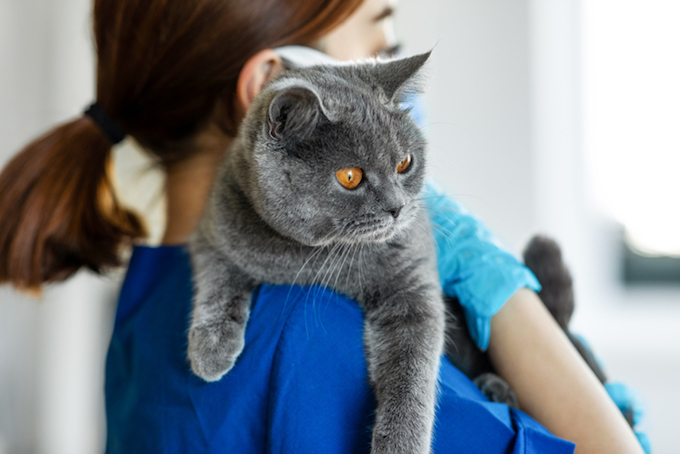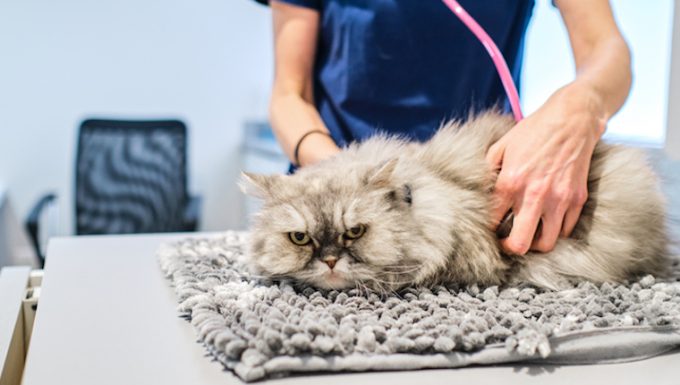Excess acidity in the blood in cats is a rare condition that affects the kidneys. Specifically, the kidneys can’t get rid of acid via peeing.
Additionally, many cats with this condition also have too much potassium in the blood.
Thankfully, the condition is quite rare in cats.
Technically, the condition is also known as renal tubular acidosis in cats. This can be abbreviated to RTA.
If you see the signs of the condition in your cat, then get to a veterinarian for a proper diagnosis and treatment.
Here’s what you should know about the symptoms, causes, and treatments for the condition.
Symptoms of Excess Acidity in the Blood in Cats
The condition produces quite a range of symptoms. For instance, some of the most common symptoms include:
- Dehydration
- Fever
- Anorexia
- Acting lethargic
- Peeing more than usual
- Pee with blood in it
- Panting
- Struggling to pee
- Vomiting
Causes of Excess Acidity in the Blood in Cats

The cause of the condition is often a kidney infection. Additionally, some of the other common causes include:
- Feline hepatic lipidosis
- Congenital factors
- Uremia
- Hypoparathyroidism
- Liver problems
- Toxins (including cleaning supplies and antifreeze)
Also, sometimes the cause of the condition is unknown. This is called being idiopathic.
Treatments for Excess Acidity in the Blood in Cats
Firstly, your vet will ask about your cat’s symptoms. Secondly, your vet will ask about your cat’s full medical history.
Thirdly, a full physical examination will be carried out. Blood, electrolyte, and urine tests will be taken. The subsequent results can help diagnose the condition.
Additionally, your cat’s blood gas can be analyzed to confirm the condition.
Generally, treatment involves being put in hospital. Usually, sodium citrate and potassium citrate will be used. This is to stabilize your cat and restore the correct level of acid in the blood.
While recovering at home it is important to provide your cat with a quiet and calm environment. Also, provide lots of fresh water for your cat to drink.
Have you ever cared for a cat who suffered from this condition? How did your vet help your kitty recover? Let us know in the comments section below.









